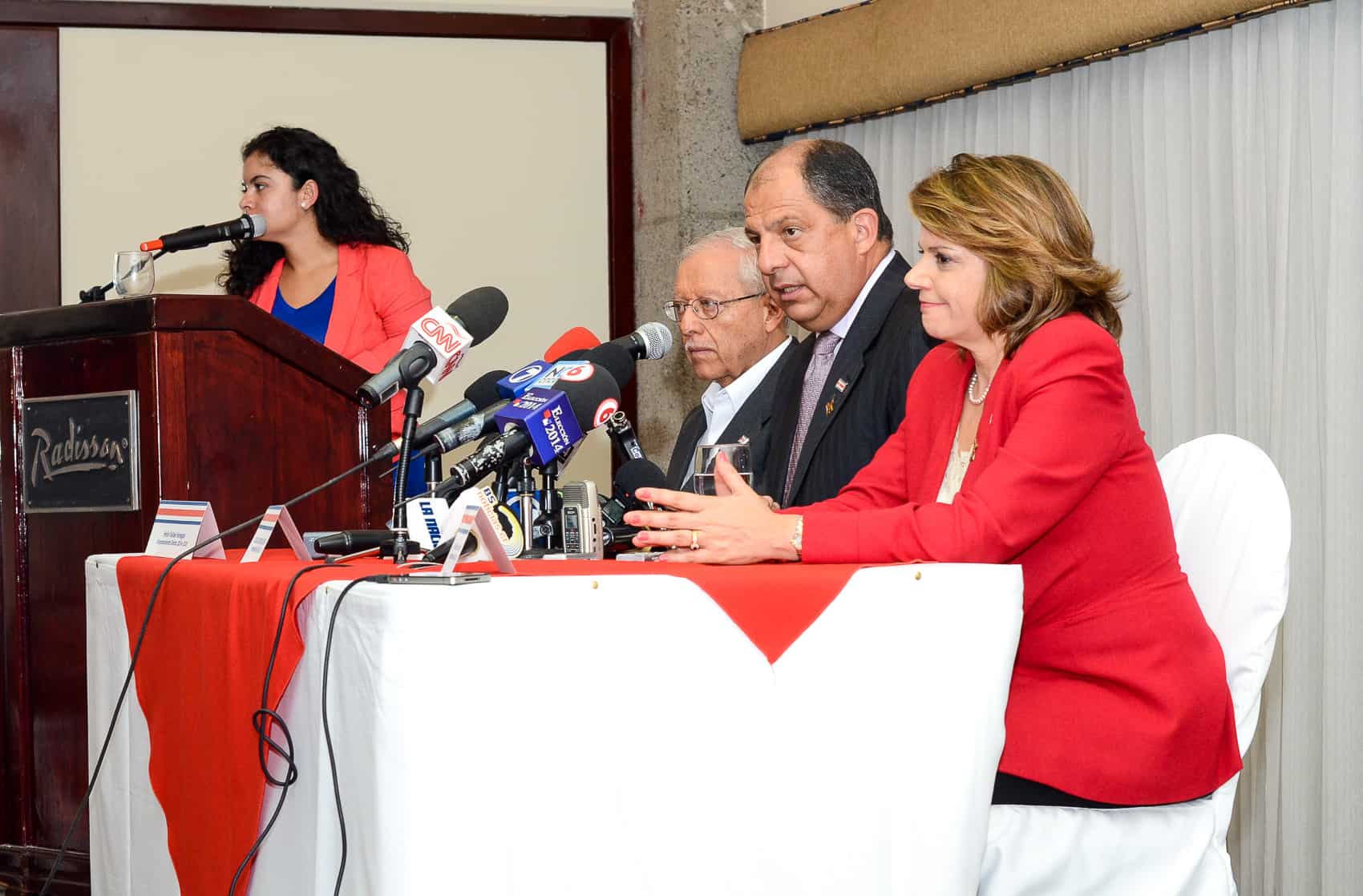Easily surpassing his goal of 1 million votes Sunday night, Costa Rican President-elect Luis Guillermo Solís has claimed a mandate to govern, but the realities of running a government still loom, analysts said on Monday.
The 55-year-old university professor who started the presidential race as a political unknown surged to a surprising first-place finish with his Citizen Action Party on Feb. 2 and claimed a record-breaking 1.3 million votes – 77.8 percent support – in Sunday’s runoff amid fears that high absenteeism would undercut his political capital. The victory interrupted over 40 years of two-party rule in Costa Rica.
“He has credibility as the anti-politician because he never ran for elected office,” said Michael Shifter, president of the Inter-American Dialogue, a Washington, D.C.-based think tank.
“The message is that even though the country wants a change from politics as usual it’s not prepared to go a more radical route,” Shifter said. “Solís’ victory is further evidence that there is a malaise with traditional politics. He’s an example that the people are looking for alternatives, and being someone without elected political experience can be an asset and an advantage.”
Recommended: Non-career politician Luis Guillermo Solís wins Costa Rica presidential runoff in a landslide
At his first press conference as president-elect Monday morning, Solís promised swift action against corruption after he takes office on May 8, including an overhaul of the country’s troubled private concessions for public infrastructure projects.
Eric Olson, associate director of the Woodrow Wilson Centers’ Latin American Program, told The Tico Times Solís had reached the threshold to claim a mandate, despite the 43 percent voter abstention rate.
“Forty-three percent is not unusually high, and since he set a goal of a million votes and got more than that, I think he can claim a mandate, especially since the most important political party historically essentially bowed out of the second round,” Olson said.
But the mandate is not enough to wrangle the fractious incoming Legislative Assembly, one where the ruling National Liberation Party holds a majority in the 57-seat legislature.
“PAC has a relatively small presence. They’re going to have to work together to see what are the priority issues and how they can build coalitions to make progress on these issues,” Shifter said.
The think tank president said Solís would have to rein in the various fractions of PAC lawmakers as well as reach across the aisle to other parties.
“Solís has been able to demonstrate political skills by winning his party’s nomination, which was not easy, and by running an effective campaign and winning the support of a broad spectrum of Costa Rican society. Now he’s got to face an even harder task of getting through his agenda,” he added.
“The challenges and expectations that have been set are enormous,” Olson said.
Solís and the PAC might have their own challenges in the coming years, but the task is greater still for the National Liberation Party, stinging from its worst defeat in the party’s history.
“Liberation has a high mountain to climb to re-establish itself as the predominant political force in Costa Rica,” Olson said, adding that the party needed to revamp its leadership, develop new ideas and show that it is in touch with Costa Rican voters.
Olson said that while other parties in similar circumstances might crumble, PLN would likely hold on. He noted that PLN already survived a schism that created the soon-to-be ruling PAC in 2000. The party is still in a position to leverage its majority in the Legislative Assembly, 18 seats, to rebuild its public image before the next election in 2018.
The Woodrow Wilson scholar concluded that Solís’ election was a surprise that demonstrated the strength of Costa Rica’s democratic tradition. “A relative outsider from a party without much history was strong and capable of winning the campaign and so many votes,” Olson said, “That’s a positive thing.”






